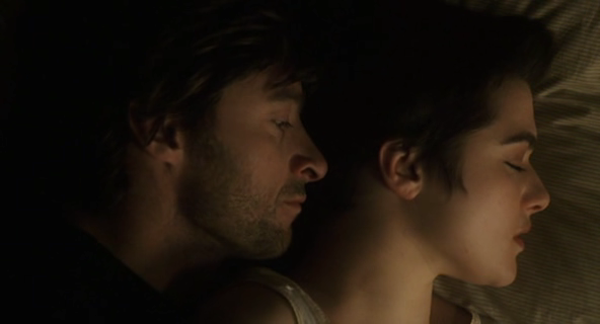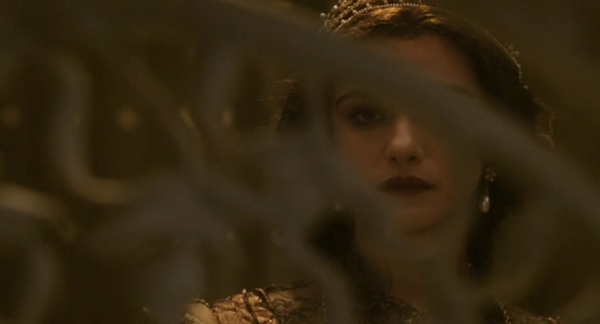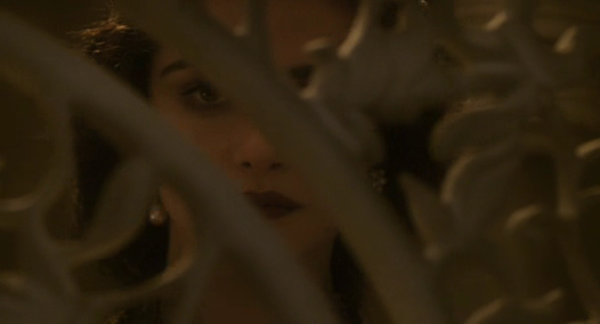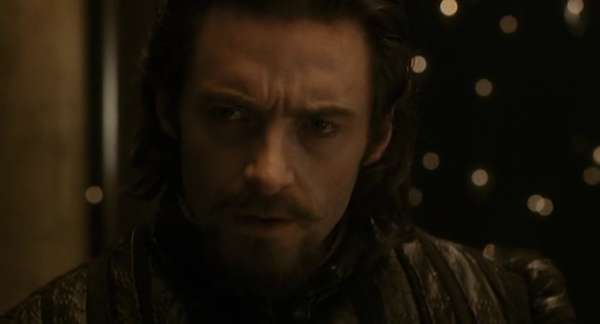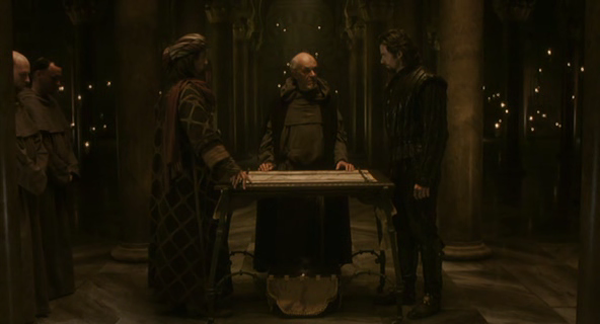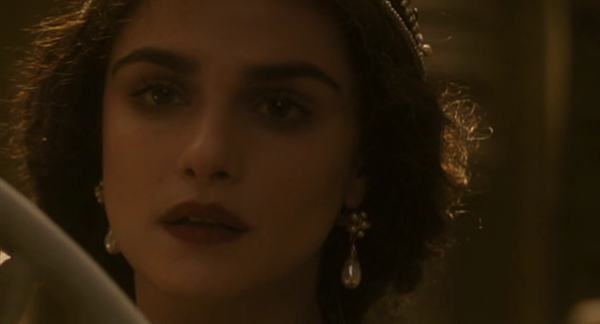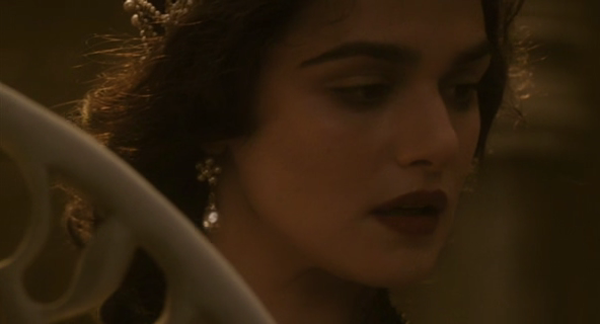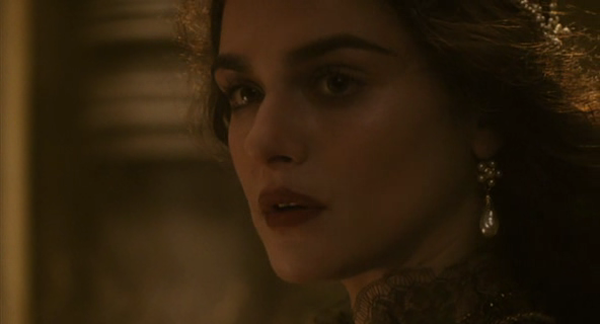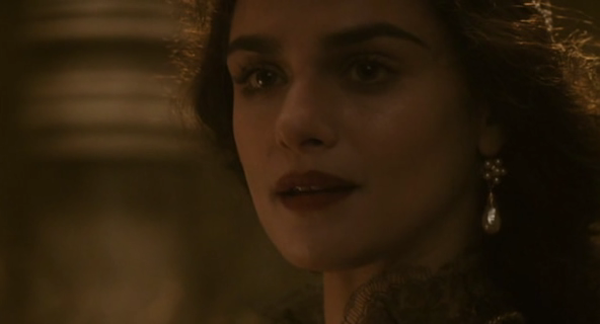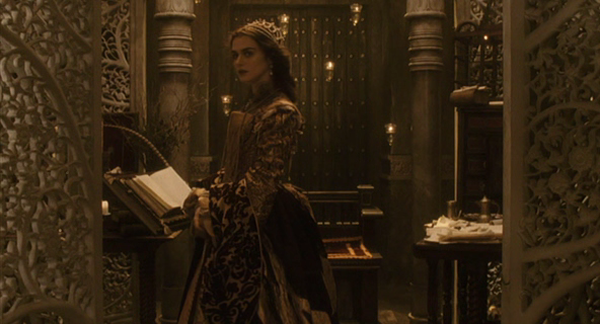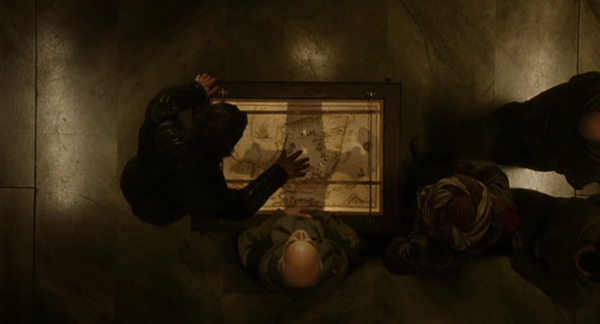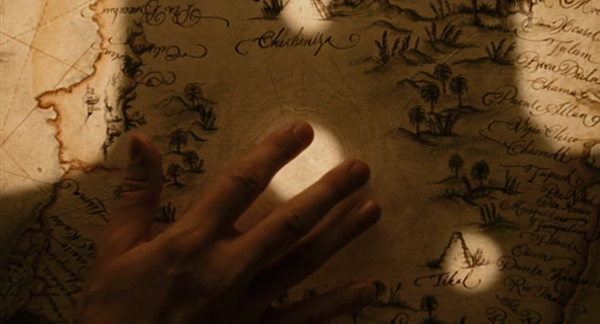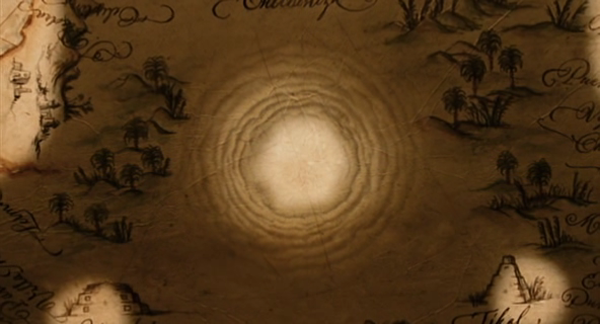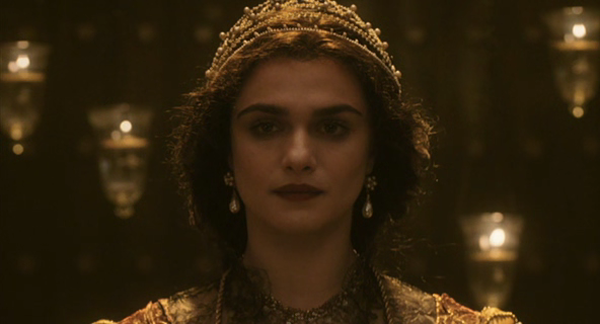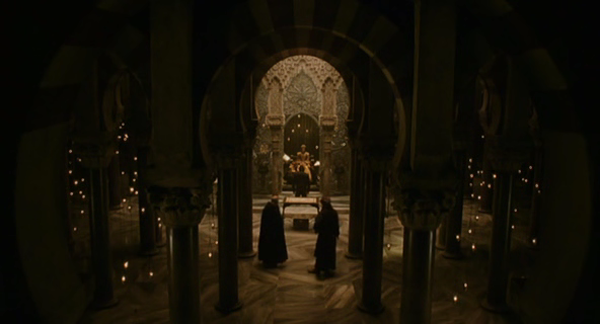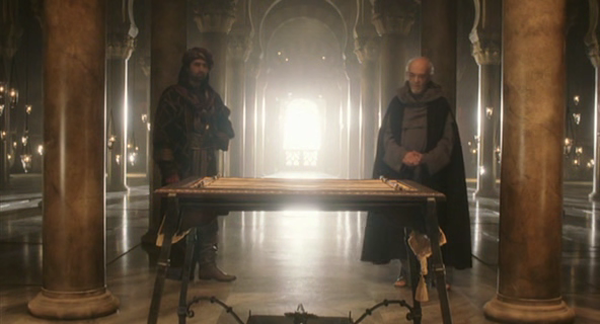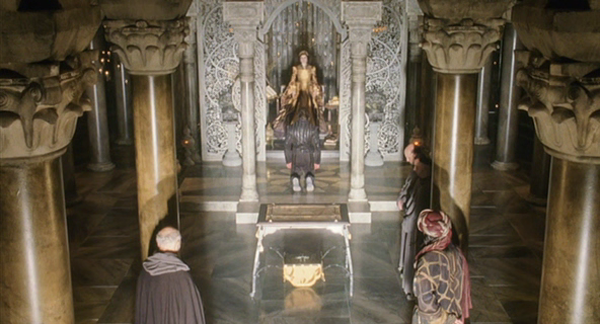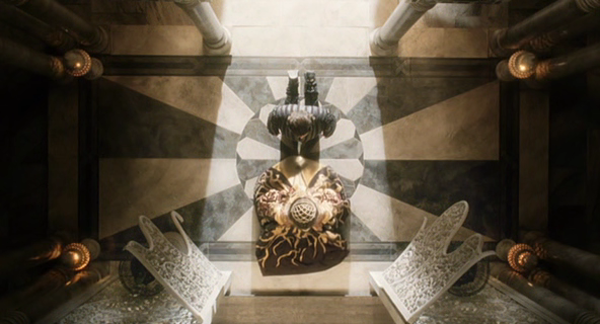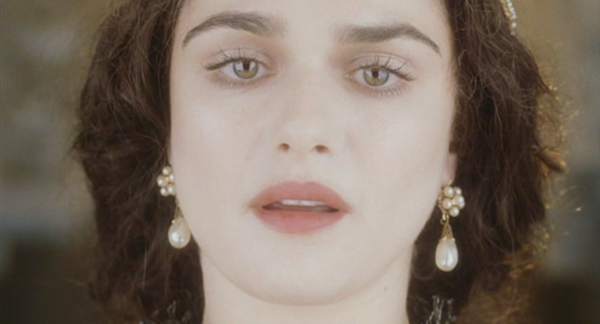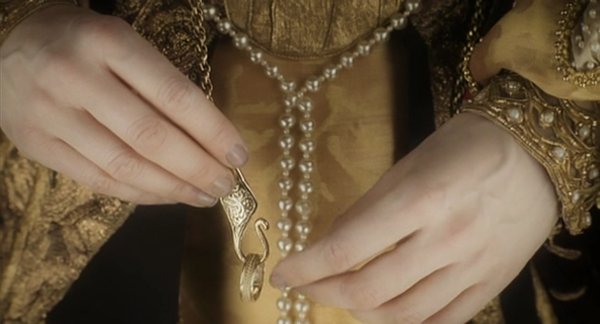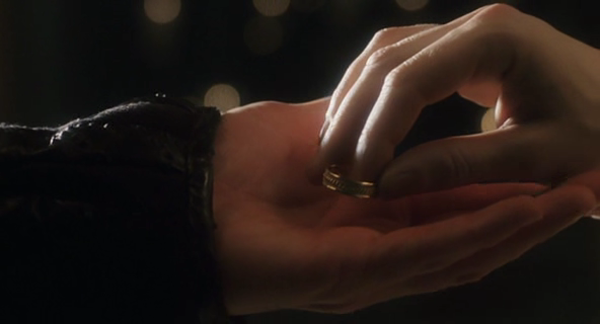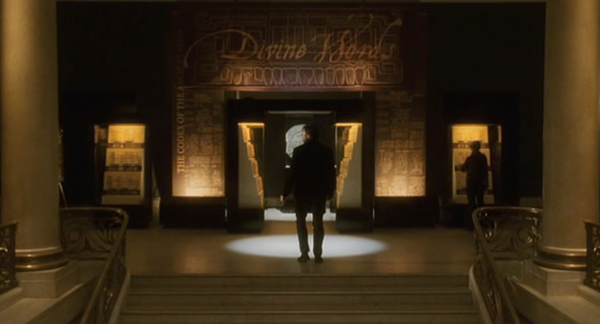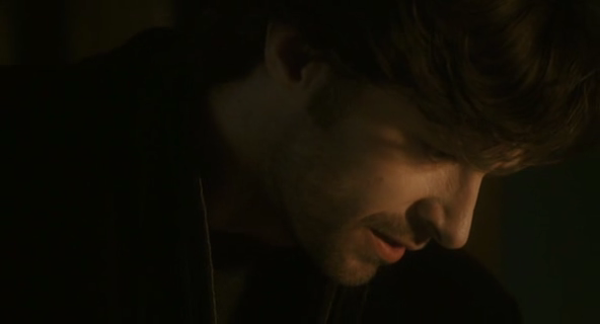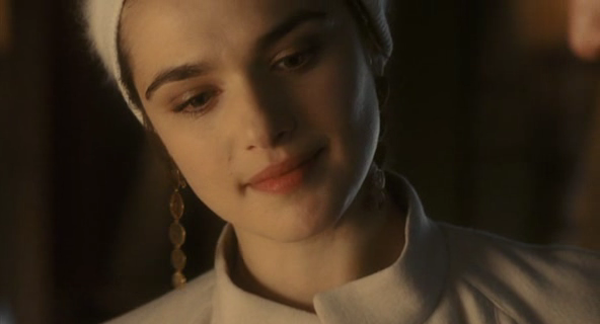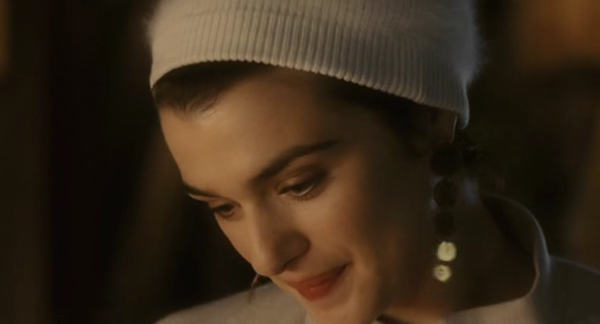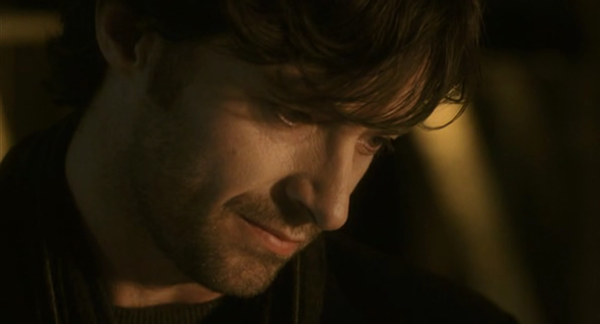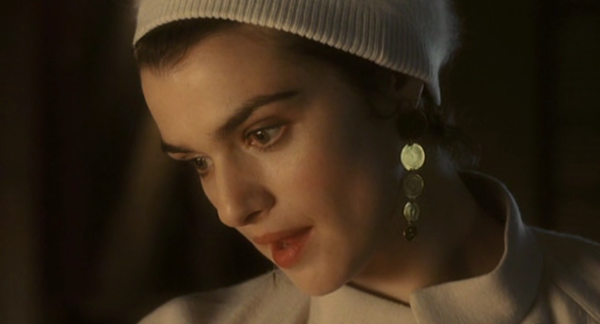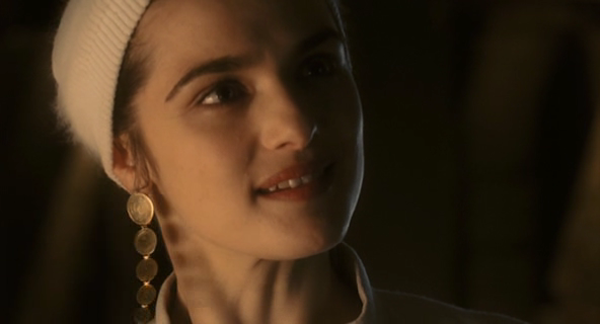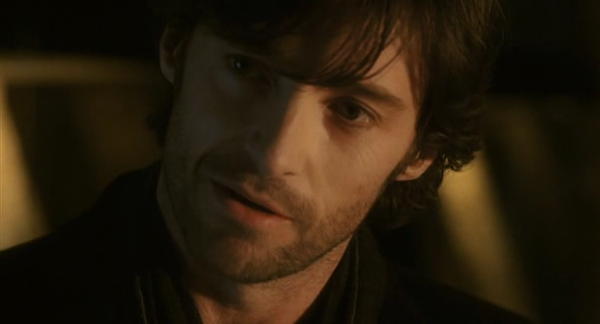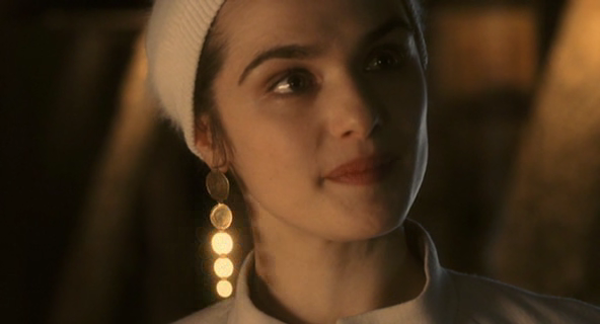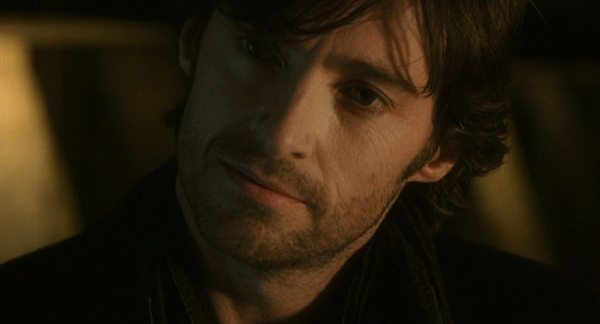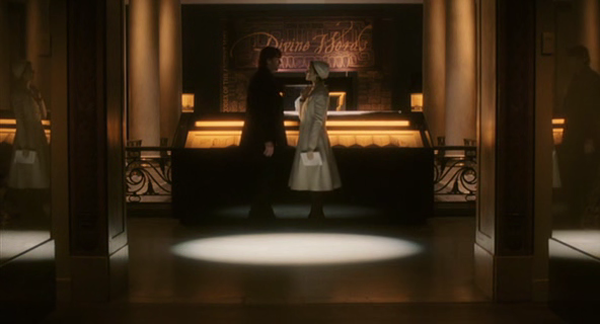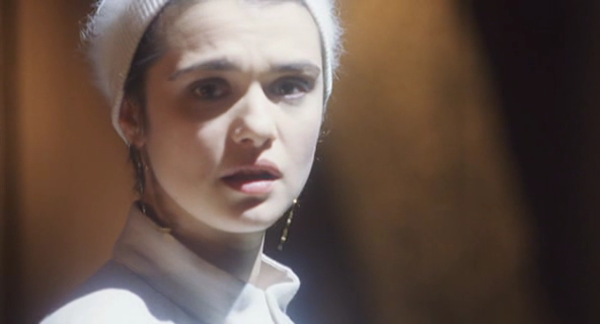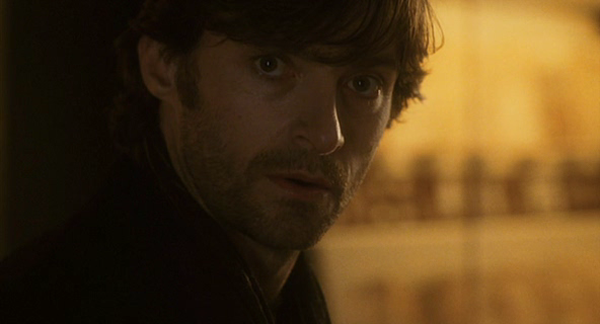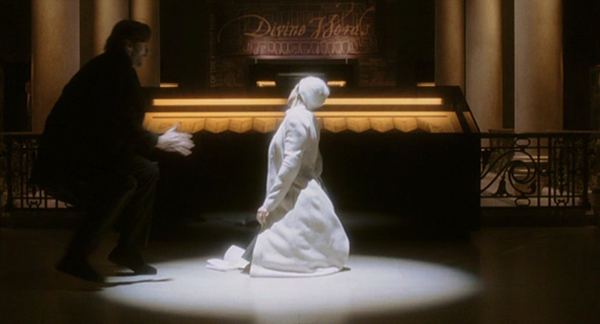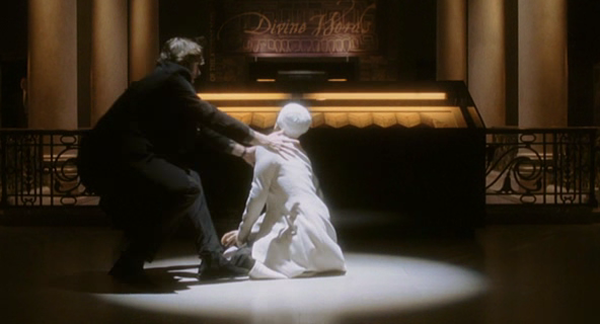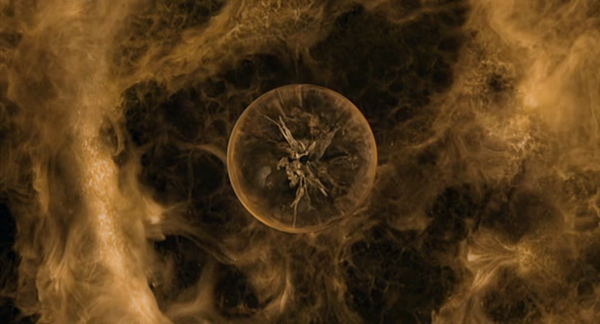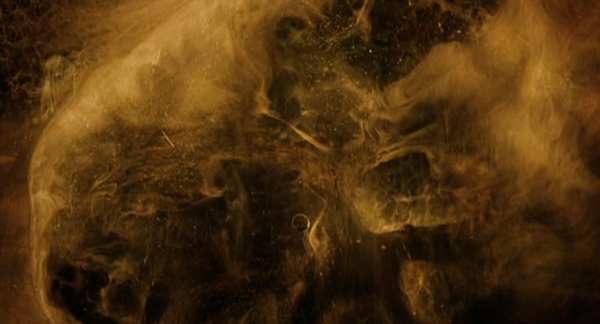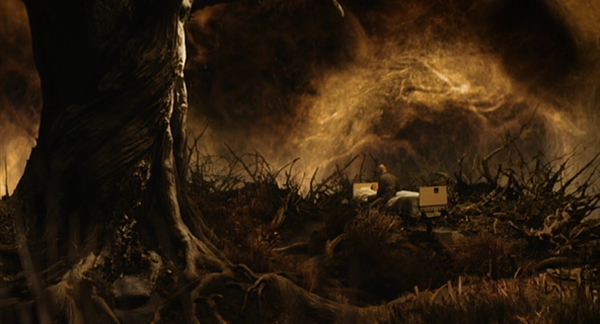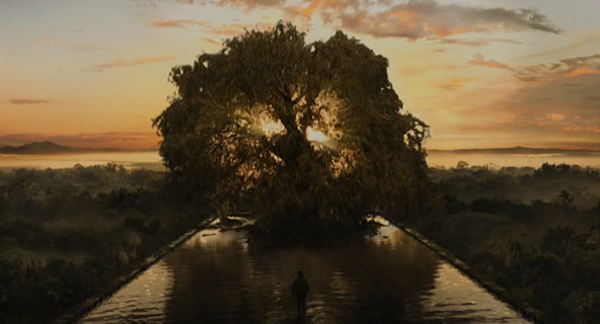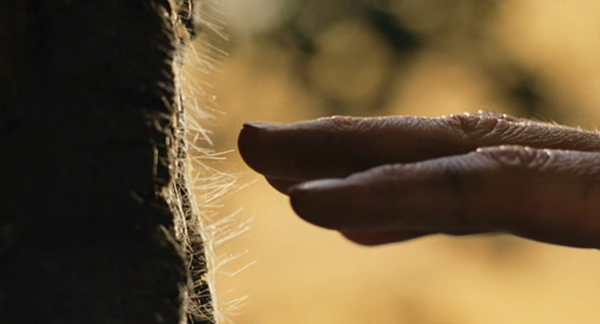'The Fountain' - comments and picspam
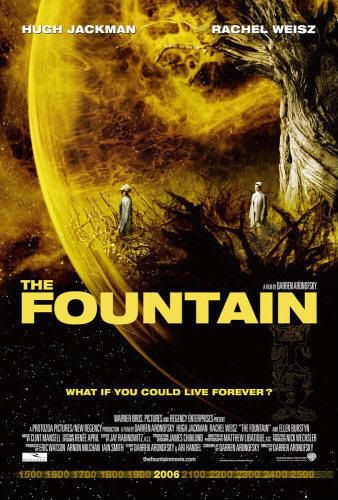
As I've mentioned elsewhere, I fell in love with Darren Aronofsky's The Fountain (2006), a profound exploration of life and death. It moves forwards and backwards in time during a period of about a thousand years. It is at once an enormous film of vast scope that tries to tackle huge ideas, and it is also a simple story of a man and woman who love each other deeply.
Hugh Jackman is Tommy, a scientist who is racing against time in an effort to find a cure for his wife's terminal disease. Rachel Weisz portrays his wife, Izzi, a luminous, quiet young woman with an active mind and an obvious zest for life.
When the film moves into the past, Jackman is Tomas, a Spanish conquistador during the Inquisition who is devoted to Queen Isabel. When he would kill the High Inquisitor, she forbids it, and insteads sends him on a quest to what is now Central America in search of the freedom from tyranny: eternal life. Guided by a priest with a secret map, Tomas goes into the jungles with great hardship to locate this mythical treasure.
In the future, Jackman plays a pale, bald man clad in a pale tunic and loose pants who tends a special, sensitive tree inside a bubble that floats in space outside a dying star.
All of these things are interconnected. In the present, Izzy is writing a book about Tomas and his quest, and the Mayans and their dying star, Xibalba, which the Mayans regarded as their underworld. In the past, Tomas, alone, is left alive after encountering Mayans protecting their secret temple, and he manages to win past the guardian priest until he comes to a special tree whose saps heals his wounds. In the future, Jackman's ascetic character continues to see visions of Izzy from the present, and he regularly talks to the tree in the same dialogue that Tommy from the present speaks to his ill wife. Before Izzy's death, she tells Tommy that she wants a seed planted over her grave so that she can grow into the tree and the tree will grow into her.
During Tommy's experiments on monkeys while he's trying to find a cure for Izzy, they use samples collected from Central America from a tree that proves to rejuvenate their monkey subject; it seems so tragic that Tommy discovers exactly what will save her life just moments too late to save her - but indeed this is the point of the film. Izzy is ready to go - she keeps telling Tommy that she's not afraid anymore, and at the end, she's trying to prepare him for life without her. Tommy refuses to accept it however: he insists "death is a disease."
In the future, the ascetic pleads with the tree (who is also dying) to hang on for just a little longer: when Xibalba dies, it will be reborn, but the tree dies, like present-Izzy, just shortly before the Xibalba explodes, but at the end, the ascetic realizes that he can die, and is ultimately grateful that his long, painful life is at an end.
When Tomas in the past gains access to the Tree of Life, its saps not only heals his wounds, but it causes flowers to burst from his wound and later his entire body is consumed by flowers that carpet the ground around the Tree - clearly, eternal life is not intended for the world, and it certainly won't free Spain from tyranny.
Present-Tommy finally makes his peace with his wife's death and he does plant the seed over his wife's grave - there is an implication that this is the tree that the ascetic future-Tommy tends.
I suppose the film seemed quite confusing to many people, and it certainly received mixed reviews, but I was drawn into this story from the beginning. It's so hushed and quiet and the extraordinary music creates an amazing mood that really gripped from start to finish. For days afterward, I couldn't stop thinking about it and its philosophical explorations. I didn't find it confusing at all - I loved how the mysteries are revealed slowly and I loved how it moved back and forth in time showing interconnectivity between all three Jackman characters and the ideas of life and death that all three faced.
The film never attempts to go beyond death, to explain what comes after, and I think that's important. It's more about accepting death as the natural course of life. I often think of something that Neil Gaiman wrote for his character Death in the Sandman comics: "Everyone gets the same thing: a lifetime." (paraphrased) Aronofsky's film illustrates death as a natural event and not something to be feared. Perhaps it's not an idea that everyone agrees with, and obviously, it's a huge concept that we all wrestle with, but still, I thought the film was beautiful beyond words and haunting, and incredibly provocative.
